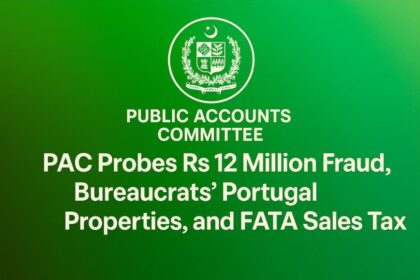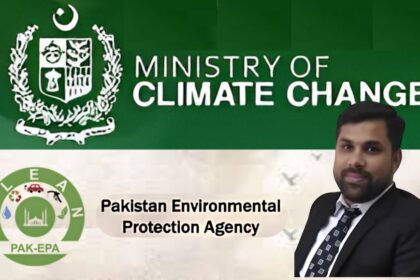Murtaza Solangi Highlights Need for Stronger TAPS Regulations and Graphic Health Warnings to Protect Youth
Islamabad: The Society for the Protection of the Rights of the Child (SPARC) organized a discussion on the “WHO Global Tobacco Epidemic Report 2025” and global best practices regarding Tobacco Advertisement, Promotion and Sponsorship (TAPS) and Graphic Health Warnings (GHWs). The session aimed to review Pakistan’s progress in implementing the WHO Framework Convention on Tobacco Control (FCTC) and its MPOWER measures.
Addressing the event as Chief Guest, Mr. Murtaza Solangi, Spokesperson to the President of Pakistan, said that the latest WHO report serves as an important reminder that tobacco remains a major public health threat. He noted that Pakistan can further strengthen its efforts by reducing all avenues of tobacco advertising, promotion, and sponsorship, and by expanding the visibility of graphic health warnings to help prevent avoidable health risks, especially among young people.
He highlighted that tobacco causes over eight million deaths globally each year — more than the combined deaths from HIV, tuberculosis, and malaria. In Pakistan, 27 million people use tobacco, resulting in more than 166,000 deaths annually. Mr. Solangi emphasized the substantial social and economic cost of tobacco use and expressed confidence that Pakistan can make meaningful progress through awareness, education, and the adoption of global best practices. He stressed the importance of informing communities about tobacco’s harms and promoting a culture of prevention.
Chairman of the National Assembly Standing Committee on NHSR&C, Dr. Mahesh Kumar Malani, said the report’s findings underline the need for stronger protection for young people. He stated that promotional activities, attractive packaging, event linkages, and online visibility can significantly influence youth. Dr. Malani noted that countries enforcing comprehensive TAPS restrictions have seen notable declines in tobacco use, particularly among younger populations. He called for strengthening GHWs and improving policies to ensure effective implementation.
Member of the National Assembly Standing Committee, Dr. Shazia Sobia Aslam Soomro, said that while Pakistan has made commendable progress, further strengthening of enforcement would enhance public protection. She remarked that clear and consistent regulations are vital to prevent gaps that undermine tobacco control efforts. Dr. Shazia added that graphic health warnings help encourage smokers to reconsider their habits and discourage youth from experimenting with tobacco use, stressing the importance of large, regularly updated image-based warnings.
Former Advisor to the Chief Minister of Khyber Pakhtunkhwa on Information and PRs, Barrister Dr. Muhammad Ali Saif, said that TAPS remains an area requiring continued focus. He pointed out that marketing at points of sale and online visibility pose ongoing challenges. Referring to WHO findings, he noted that countries with well-enforced TAPS restrictions have experienced significant decreases in tobacco consumption, especially among young people.
SPARC’s Program Manager, Dr. Khalil Ahmad Dogar, shared that promotional activities continue to influence consumer behavior in subtle ways despite existing restrictions. He said that countries with complete bans on all forms of TAPS have recorded substantial declines in tobacco use, particularly among youth.
The session brought together policymakers, journalists, civil society members, academics, media professionals, and youth groups. Participants reviewed Pakistan’s progress on graphic health warning implementation and TAPS enforcement and emphasized the need for coordinated efforts and stronger regulations to advance tobacco control nationwide.











